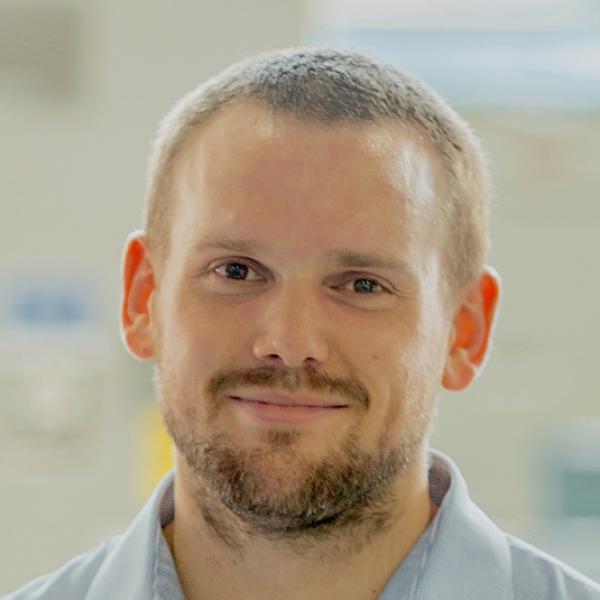Dr Nick Weston
MEng, PhD, MIMMM
School of Chemical, Materials and Biological Engineering
Application Scientist (Advanced Metals Processing) | Henry Royce Institute


Full contact details
School of Chemical, Materials and Biological Engineering
Royce Discovery Centre
5 Portobello Street
91䧣´
S1 4ND
- Profile
-
Nick joined the Henry Royce Institute in October 2022 as an Application Scientist, bringing a strong background in advanced metals processing and powder metallurgy. He completed his undergraduate degree in Aerospace Engineering and a PhD in Metallurgy, both at 91䧣´. Followed by 6 years as a Postdoctoral Research Associate (PDRA) in the .
Nick focuses on developing capabilities and understanding limitations of Field Assisted Sintering Technology in order to apply its unique processing potential to solve real-world industrial manufacturing problems. Previous research included recycling waste titanium alloys through the FAST and FAST-forge processes to produce affordable engine components for the automotive industry (). This work has been featured as a case study for the Henry Royce Institute.
- Qualifications
-
-
Oct 2022 ã Present: Henry Royce Institute Application Scientist (Advanced Metals Processing).
-
Oct 2018 ã July 2022: Research Associate, Department of Materials Science and Engineering, 91䧣´, UK. Innovate UK funded project () ãFAST STEP 3 - Swarf Titanium to Engine Parts in 3 Stepsã with Prof Martin Jackson.
-
Aug 2016 ã Sept 2018: Research Associate, Department of Materials Science and Engineering, 91䧣´, UK. Innovate UK funded project () "FAST-forge - from rutile sand to novel titanium alloy aerospace component in 3 steps" with Dr Martin Jackson.
-
Sept 2011 ã Oct 2017: PhD in Metallurgy via the Advanced Metallic Systems Centre for Doctoral Training at 91䧣´, UK. Thesis: ãã&ýåýºý¾ÝÒ;
-
Sept 2007 ã June 2011: MEng (Hons) Aerospace Engineering (1st Class) at 91䧣´, UK
-
- Research interests
-
Current and future research focuses on utilising Field Assisted Sintering Technologyãs (FAST) unique processing conditions, as well as understanding and overcoming its limitations, to solve real-world industrial manufacturing problems. Broad areas of interest include: (1) Improvements in FAST specimen geometric complexity and moving towards near net-shape. (2) Microstructural control and manipulation, including subsequent post-FAST processing. (3) Joining of dissimilar alloys and materials via FAST. (4) FAST modelling/simulation for improved process control and component optimisation.
- Publications
-
Journal articles
- . Powder Metallurgy, 67(1), 70-85.


- . Advances in Industrial and Manufacturing Engineering, 5, 100103-100103.


- . International Journal of Fatigue, 163, 107054-107054.


- . Metals, 10(2).


- . MATEC Web of Conferences, 321, 02006-02006.


- . Journal of Materials Processing Technology, 269, 200-207.


- . Materials Science and Technology, 35(11), 1306-1328.


- . Journal of Materials Processing Technology, 254, 158-170.


- . Metallurgical and Materials Transactions A, 48(11), 5228-5232.


- . Journal of Materials Processing Technology, 243, 335-346.


- . Journal of Materials Science, 50(14), 4860-4878.


- . Materials Science and Technology.


Conference proceedings papers
- . Powder Metallurgy, 67(1), 70-85.
- Media and public engagement
- Finalist of the Parliamentary & Scientific Committeeãs .
- Henry Royce Institute Ambassador
- Nick co-developed the ãFAST-forgeã process, which has featured in a number of media publications:
- UK Government website news article ãã, where the Secretary of State for Defence said: ãThis ground-breaking method is not only faster and cheaper but could see a huge expansion of titanium parts and equipment throughout the military. It is a clear example of how our world-class scientists are working behind the scenes to help our Armed Forces as well as bringing prosperity and security to Britain.ã
- IMechEãs website news articles ãã and ãã.
- IOM3ãs Materials World magazine article ãã.
- ASMãs Advanced Materials and Processes magazine article ãã.
